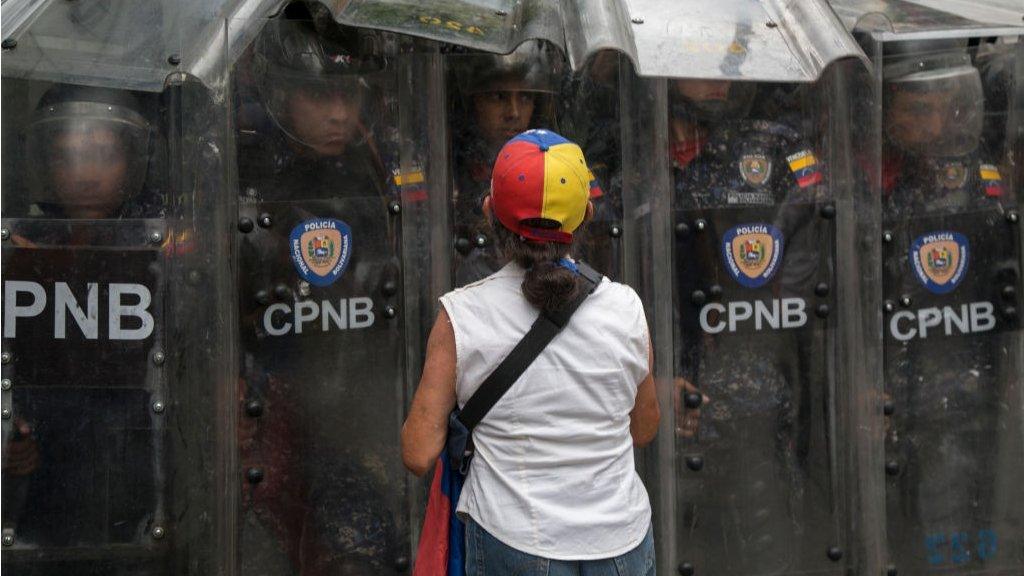Venezuela closes border with Colombia 'to destroy mafia'
- Published
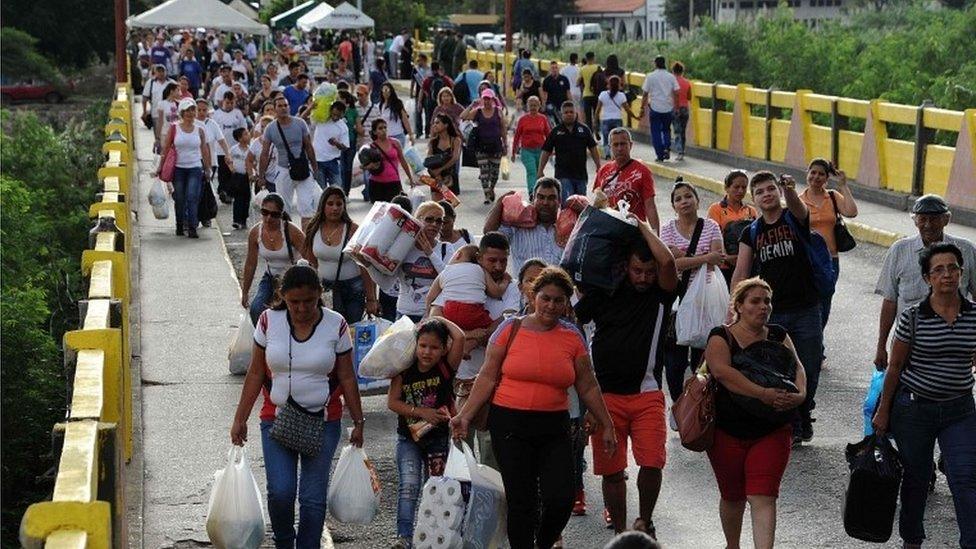
The main crossing links Cucuta in Colombia to San Antonio de Tachira in Venezuela
Venezuela has closed its border with Colombia for 72 hours in the latest measure to combat smuggling gangs.
President Nicolas Maduro says the "mafia" operating in border areas is causing huge damage to the economy.
Many items subsidised by Venezuela's socialist government, including diesel and petrol, are sold at a huge profit over the border in Colombia.
On Sunday, he announced that the country's highest denomination bank note would be taken out of circulation.
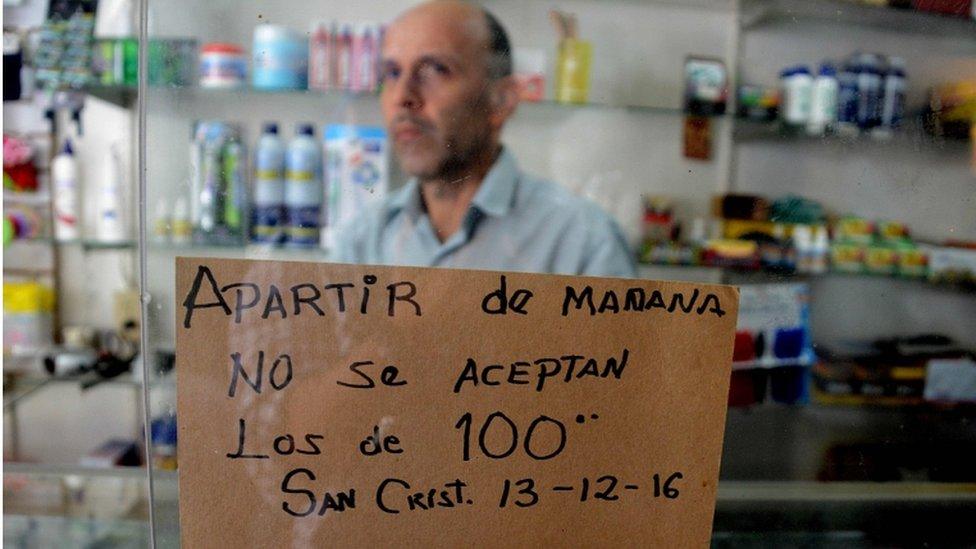
Shops are warning customers they will no longer accept 100-bolivar notes
'Destroy the mafia'
President Maduro said the move would stop gangs hoarding the currency.
"Let's destroy the mafia before the mafias destroy our country and our economy," he said on national television.
"This measure was inevitable, it was necessary," he added. "The mafias will go bust."
Venezuela last closed most border crossings with Colombia in August 2015. The border was partially reopened a year later.
In 2015, the Colombian government complained that it had not been consulted or informed.
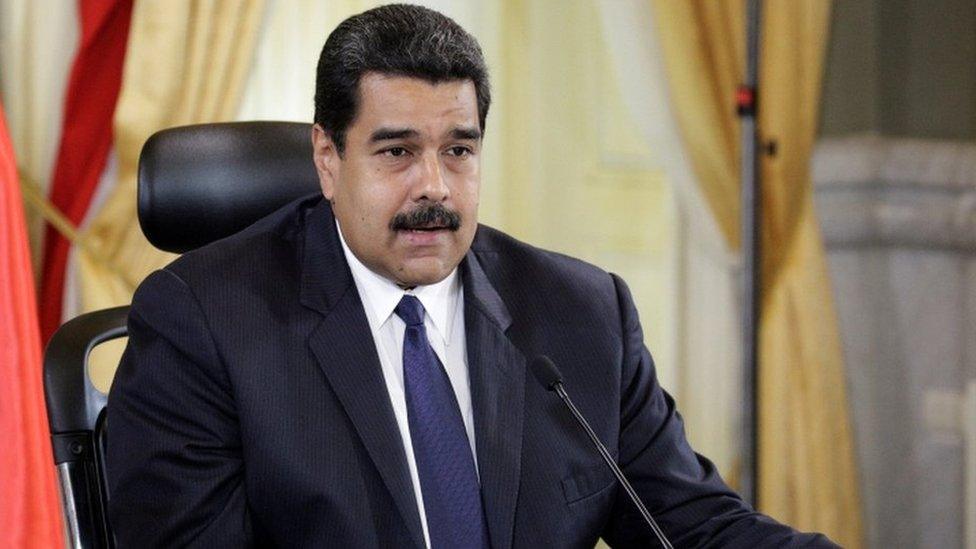
President Maduro said the measure was "inevitable and necessary"
But both sides eventually reached an agreement to cooperate on tackling crime and smuggling along the 2,200km (1,370 miles) border.
The measure caused huge disruption for the people who live and work in border cities.
This time, Mr Maduro said the border would be reopened after 72 hours, once the 100-bolivar notes ceased to be valid.
'Warehouses full of notes'
Central bank data suggests there are more than six billion 100-bolivar notes in circulation, making up almost half of all currency.
Venezuelans will then have 10 days to exchange the notes for coins and new, higher-value bills, but only at the Central Bank.
In India, a similar move scrapping high-value bank notes last month has caused major disruption.
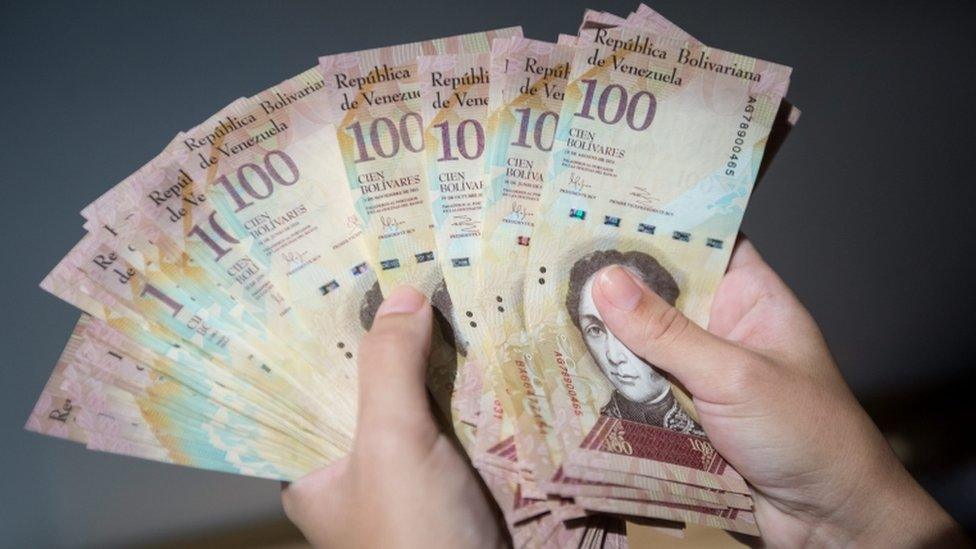
The value of a 100-bolivar note has dropped to just 2 US cents on the black market
Mr Maduro said the gangs held more than 300bn bolivares worth of currency, most of it in 100-bolivar notes.
President Maduro said there were "entire warehouses full of 100-bolivar notes in the [Colombian cities of] Cucuta, Cartagena, Maicao and Buaramanga".
"I have given the orders to close all land, maritime and air possibilities so those bills taken out can't be returned and they're stuck with their fraud abroad," he said on Sunday.
Critics of Mr Maduro have predicted chaos and doubt that the facilities will be in place for people to exchange all their 100-bolivar notes.
"When ineptitude governs! Who would possibly think of doing something like this in December amid all our problems?" opposition leader Henrique Capriles wrote on Twitter (in Spanish), external.
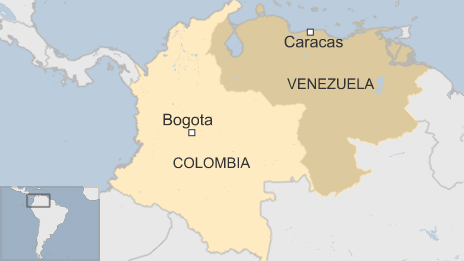
- Published12 August 2016

- Published4 December 2016
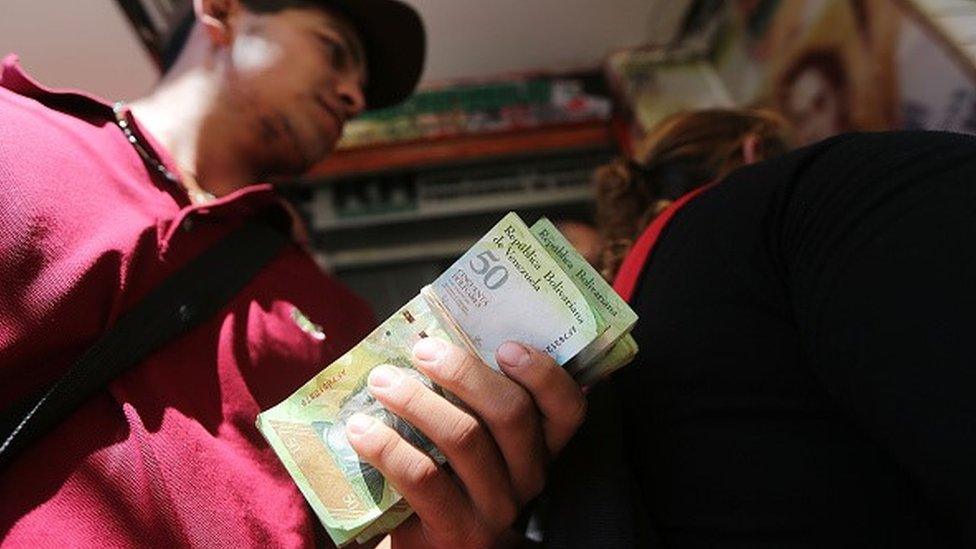
- Published13 September 2016
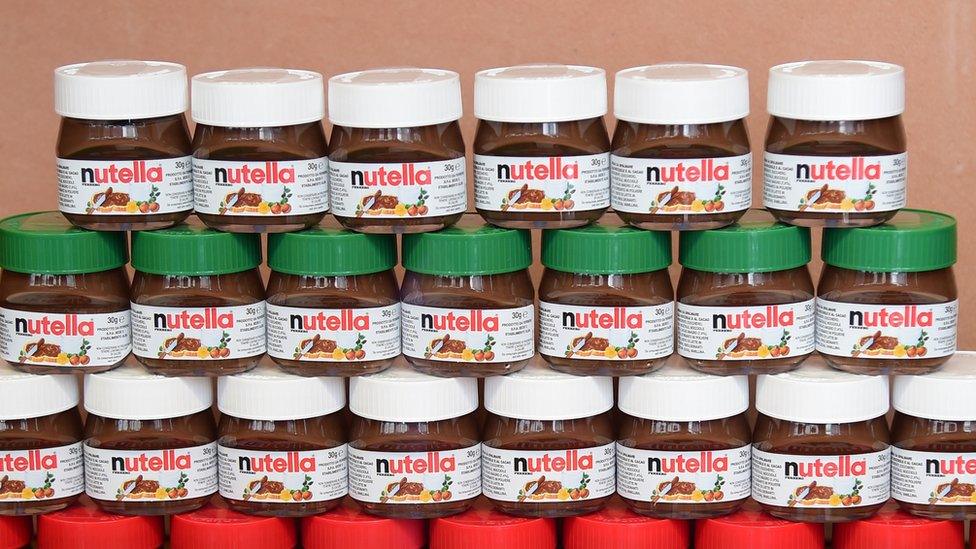
- Published12 August 2021
